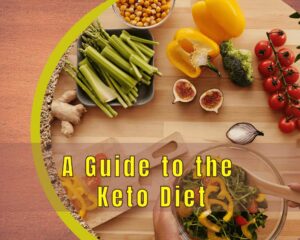
The Big Question About the Keto Diet for Weight Loss
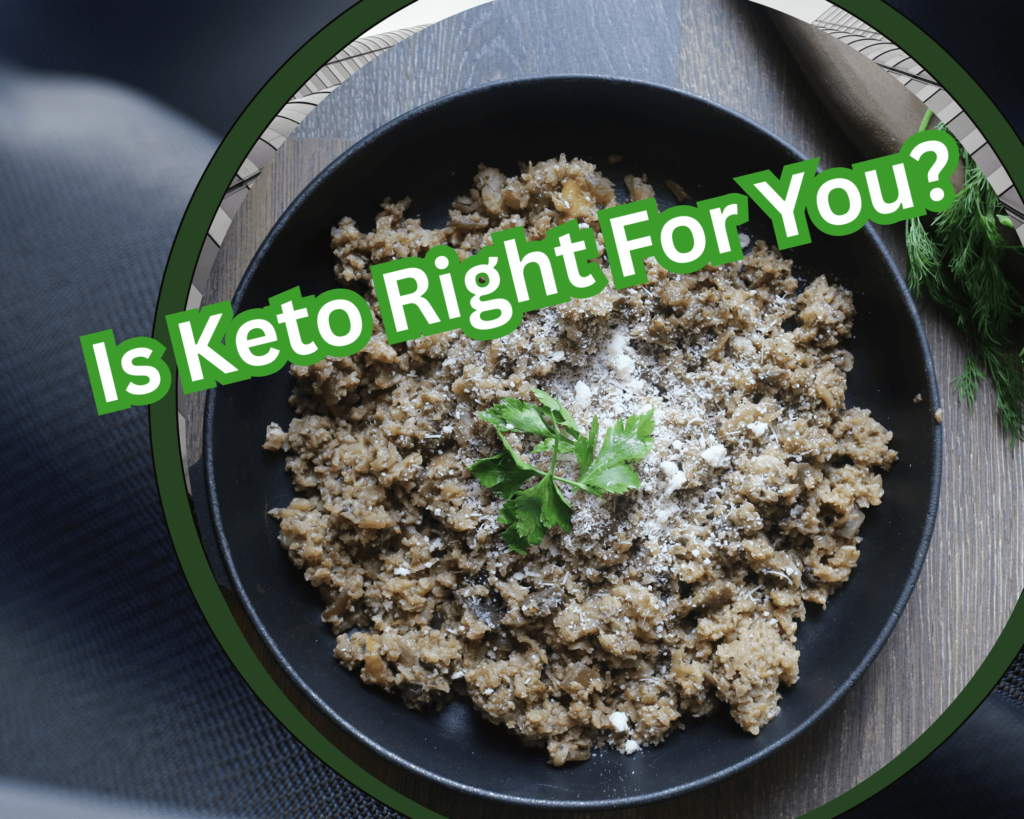
Disclosure: Please be aware that I may receive a small commission (at no extra cost to you) if you decide to make a purchase after clicking on a link in this article and making your purchase through one of my affiliate links.
This site does not provide financial or medical advice and is just for entertainment purposes. Before making any significant dietary changes, you should talk to your doctor.
Our affiliate disclosure is available in our privacy policy.
Could the keto diet for weight loss be the next big thing, or is it just another passing trend? For Weight Watchers and other health-conscious people all over the globe, this is the most pressing question.
The ketogenic diet is a low-carb, high-fat eating plan that has recently gained popularity in the health and fitness industry. Everyone is talking about keto, and some have even tried it, but what are the real advantages of the diet?
First, let’s take a closer look at what this eating plan comprises before you go crazy buying avocados and almond butter and making steak dinner plans every night.
To help you decide if entering ketosis is the correct choice for you, we will cover all the bases, from the benefits supported by science to the risks you run the risk of experiencing.
Table of Contents
What is the keto diet?
For many, the first and foremost concern regarding the ketogenic diet is: what is it? It appears to be a low-carb, high-fat diet plan at first glance, but there is a brilliant scientific strategy to successfully lose weight hidden beneath the surface.
The ketogenic diet aims to induce the metabolic state of ketosis, which uses fat as fuel instead of carbohydrates. It’s all about switching up the typical serving sizes of nutrients to create a whole new dynamic in the way you fuel and nourish yourself.
Your body uses carbs for energy when you’re following a normal diet. On the other hand, the ketogenic diet and similar carbohydrate restriction programs make your body discover other ways to power itself utilizing fat and ketones.
How does keto work?
Most of the time, glucose, which comes from carbohydrates, is the main fuel that the human body uses. The metabolic state known as ketosis occurs when carbohydrate consumption is drastically reduced. At this metabolic state, the liver begins to produce molecules called ketones from fat rather than glucose.
Ketones can replace glucose as an energy source for the brain and other tissues that normally use glucose. These ketones are released into your bloodstream when you burn fat. They travel to various parts of your body and provide them with energy.
What can you eat on a keto diet?
Appropriate fats (such as avocados and olive oil) should make up 70–75% of calorie intake, while protein sources (such as lean meats, fish, and nuts) should account for 20% and carbs for 5%–10%. Avoid high-carb foods like bread and pasta and load up on non-starchy veggies like broccoli, cauliflower, and spinach instead.
A ketogenic diet may help some people lose weight and manage specific health issues, but it isn’t going to work for everyone.
Anyone with liver disease or pancreatic disorders shouldn’t follow this diet because of the potential difficulty in processing such high fat levels. If you feel that this change to a low-carb, high-fat diet is something you would benefit from, Please see your medical provider for guidance.
Because of the risks of ketosis, people with type 1 diabetes should also talk to their doctor before beginning this diet.
Your lifestyle and health objectives should inform your choice of ketogenic diet from among many different plans, such as the high-protein ketogenic diet, the targeted ketogenic diet, and the cyclic ketogenic diet (CKD).
This opens up a world of protein-rich foods like tofu, eggs, cheese, turkey, salmon, and chicken breast. The healthiest sources of fats include avocados, nuts, seeds (such as flaxseeds or chia seeds), fatty fish (such as mackerel or sardines), olives, and olive oil.
You should restrict your carbohydrate consumption to low-carb veggies like zucchini, bell peppers, spinach, and broccoli. Berries, such as raspberries and blackberries, are relatively low in carbs compared to other fruits.
On a ketogenic diet, you should stay away from foods that are high in sugar, such as grains (like wheat pastas and breads), starchy veggies (like potatoes and corn), sugary drinks (like soda), and the majority of fruits.
Just because this diet works for some people doesn’t mean it will work for everyone else. It is always wise to seek the advice of a healthcare professional or a dietitian before beginning a new diet program.
Greek yogurt, cheese, and butter are all acceptable keto-friendly dairy options; just make sure to choose the full-fat varieties. The high saturated fat content of these foods can raise cholesterol levels if eaten in excess, so moderation is key.

You should have some nuts and seeds in your keto pantry, such as almonds, walnuts, or flaxseeds, because they provide healthy fats and fiber.
Drink lots of water throughout the day to stay properly hydrated. You can have coffee and tea while on this diet, but you can’t sweeten them or add sugar.
Gaining carbs and fat percentages aren’t the only things you need to know about the keto diet. It’s also acknowledging the positive impact this eating plan can have on health as a whole.
Research has shown that there are several health benefits to this practice, including weight loss, enhanced mental clarity, reduced blood sugar levels for diabetics, and possibly even anti-cancer effects. As you embark on a path to better health with every bite, the ketogenic diet has the potential to be more than just a diet plan—it has the potential to change your life!
Does the keto diet work for weight loss?
One of the hottest diets right now is the ketogenic, or keto, diet, and learning more about it can be a fascinating adventure. This one-of-a-kind eating regimen emphasizes a heavy consumption of lipids and proteins and a drastic reduction in carbs.
But can you really lose weight following this diet trend? The obvious answer is “yes,” but there are nuances beyond that.
By reducing carbohydrate consumption and increasing fat burning, the keto diet achieves its weight-loss goals. With this method, you can lose a lot of weight quickly. While this diet is effective for some people, it might not be a good fit for others or be sustainable in the long run.
Research on the ketogenic diet’s long-term effects is in its infancy; preliminary findings point to health risks, including nutrient deficiencies and kidney stones, in those who attempt to follow the regimen without medical supervision.
Keto flu symptoms, such as headaches, exhaustion, and irritability, may also develop as a result of the severe reduction in carbohydrate consumption.
However, many people have found that cutting out high-carbohydrate foods improves their energy and mental clarity by reducing blood sugar spikes. Its possible usefulness in the treatment of epilepsy and type 2 diabetes is another area of health that has received much attention.
The keto diet’s revolutionary impact on metabolism is what really differentiates it from competing weight-loss plans. An optimal metabolic state known as ketosis occurs when your body switches from using glucose (from carbohydrates) for energy to using ketones (from fat).
A potentially life-changing tool in your weight loss journey, this shift activates your body’s innate ability to burn stored fat more efficiently! The weight-loss benefits of the keto diet aren’t just lip service; they’re deeply rooted in how our metabolisms work.
How much weight can you lose on the keto diet?
In reality, how many pounds can a person lose on the ketogenic diet? Science and anecdotal evidence both show astounding results.
After just two weeks on the ketogenic diet, some people have lost ten pounds. Some people have lost as much as 100 pounds in as little as a few months, and their stories are truly motivational.
Keep in mind that variables such as starting weight, body composition, age, and gender can significantly affect individual outcomes.
Eight weeks of adhering to a ketogenic diet resulted in nearly twice the weight loss of a low-fat diet, according to a study published in the British Journal of Nutrition.
Another study found that after 24 weeks on the ketogenic diet, participants lost an average of 20 pounds.
The remarkable reduction in body fat percentage is a direct result of the physiological changes that occur when we drastically cut back on carbs and increase our fat consumption. Ketosis is a metabolic state in which the body starts to use fat for energy rather than carbohydrates.
Faster weight loss is just one of the many health benefits of a metabolic shift, which also brings about better control of blood sugar levels, reduced blood pressure, and a healthier heart.
Keep in mind that the ketogenic diet might only work for some, even though it has helped a lot of people lose weight.
It cannot be stated enough that you should always check with your doctor before making any major dietary changes. Medication interactions necessitate close medical supervision when making significant dietary changes.
Keep in mind that your body will react differently to dietary changes than anyone else’s. This means that there is no practical way to establish a universally applicable weight-loss goal.
In deciding how much weight you’ll lose on this low-carb bandwagon, these tricky factors play crucial roles: sustainability, metabolic rate, lifestyle habits, and overall health. In any case, it’s reasonable to assume that many individuals who have joined the keto trend have discovered the key to life-changing outcomes!
Is the keto diet sustainable long-term?
With its claim of long-term weight loss success, the ketogenic diet has certainly been all the rage recently. However, can we say that it is a viable option for the future? Though it may cause quick weight loss at first, scientific studies show that the restrictive nature of the diet, along with possible side effects like nausea, exhaustion, and mood swings, can make it difficult to maintain the results. However, many of these symptoms are short-term and are associated with the “keto flu.”
If you experience long-term symptoms, as mentioned, it is advisable to see your medical professional and discontinue the dietary changes you started until a medical professional is seen.
Furthermore, the complete long-term effects of adhering to a low-carb, high-fat diet have not been determined. Consumption of foods high in saturated fats may cause heart disease, according to some experts.
The ketogenic diet drastically limits the consumption of specific nutrients, such as carbs, in contrast to other eating plans that promote a varied and balanced consumption of all food groups. Supplements or careful meal planning are necessary to prevent nutrient deficiencies.
In addition, some people may find it challenging to maintain the long-term commitment and discipline necessary to remain in ketosis, a state where the body burns fat for energy instead of blood sugar.
Despite these reservations, a large portion of the ketogenic diet’s adherents attest to its weight loss and health benefit claims, particularly in relation to blood glucose and cholesterol profiles.
Some people have discovered a way to embrace a more adaptable form of the ketogenic diet, and there are also anecdotes suggesting it improves mental clarity.
If you want to make ketosis more manageable without sacrificing any of the benefits, try carb cycling or taking a more relaxed approach to the diet. While it’s true that not everyone can maintain a strict regimen for the long term, making some adjustments can lay a solid foundation for long-term weight loss success on the ketogenic diet.
Table of Contents
Summary: Making an informed decision about the keto diet. Is it for you or not?
The ketogenic diet has a wide range of potential side effects. Many people have successfully lost weight on this low-carb, high-fat regimen; others have struggled with the program’s unpleasant side effects or adaptation requirements.
The contrast highlights the importance of carefully considering the benefits and drawbacks of the ketogenic diet in relation to your lifestyle and specific health needs, rather than blindly jumping into it.
Knowing your metabolic machinery, food preferences, medical history, and activity level is essential for tailoring any diet to your needs, including the keto diet.
Making a plan that fits you perfectly, even if it takes more work upfront, is more important than trying to fit yourself into a formula that someone else found to be successful. Make sure the story that develops is uniquely yours, but remember that informed decision-making is crucial when contemplating extreme dietary changes like Keto.
Table of Contents

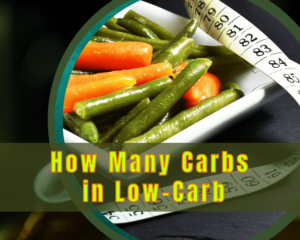
How Many Carbs in a Low-Carb Diet Is Ideal?
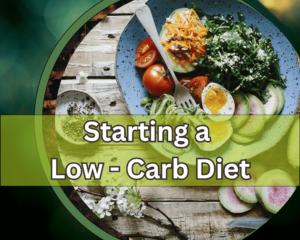
Jumpstart Your Journey: Starting a Low-Carb Diet 101

Keto and Intermittent Fasting Combo for Weight Loss
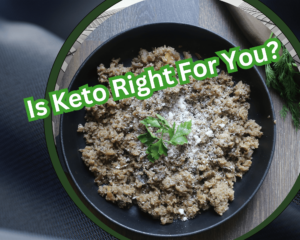
The Big Question About the Keto Diet for Weight Loss
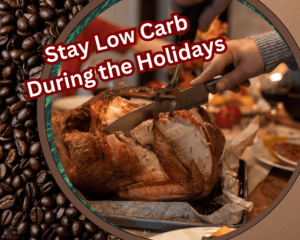
How to Stay Low Carb During the Holidays

An Easy Low-Carb Meal Plan for Fat Loss

Mindful Eating: Key to Your Keto Diet During the Holidays

Your Ultimate Guide to the Best Keto Vegetables

What happens when you eat a low-carb high-fat diet?

How Many Carbs Are in a Low-Carb Diet? Let’s Take a Look.
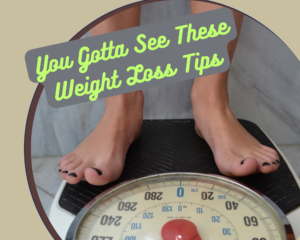
Top Tips for Fast and Effective Weight Loss
Disclosure: Please be aware that I may receive a small commission (at no extra cost to you) if you decide to make a purchase after clicking on a link in this article and making your purchase through one of my affiliate links.
This site does not provide financial or medical advice and is just for entertainment purposes. Before making any significant dietary changes, you should talk to your doctor.
Our affiliate disclosure is available in our privacy policy.










